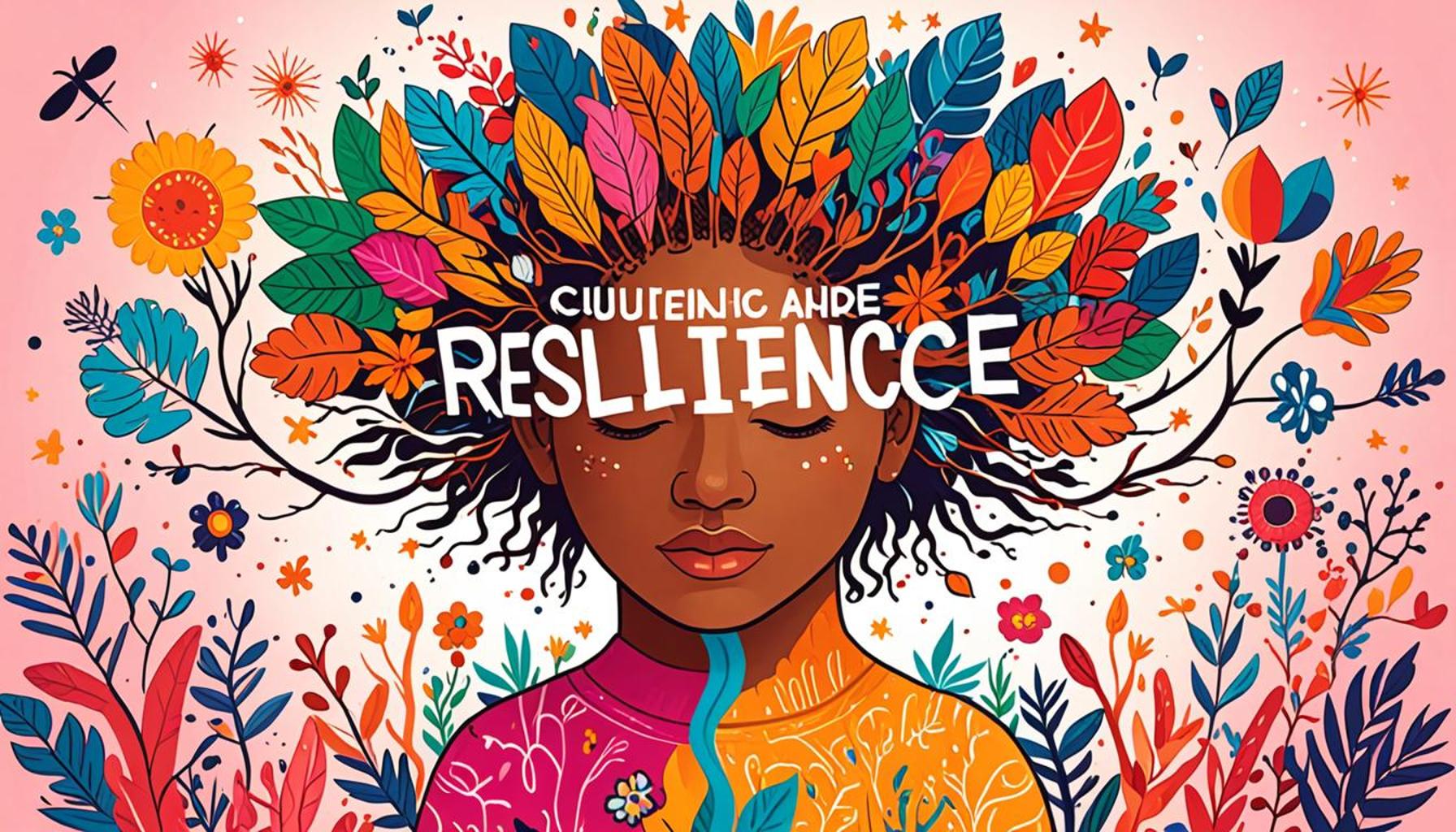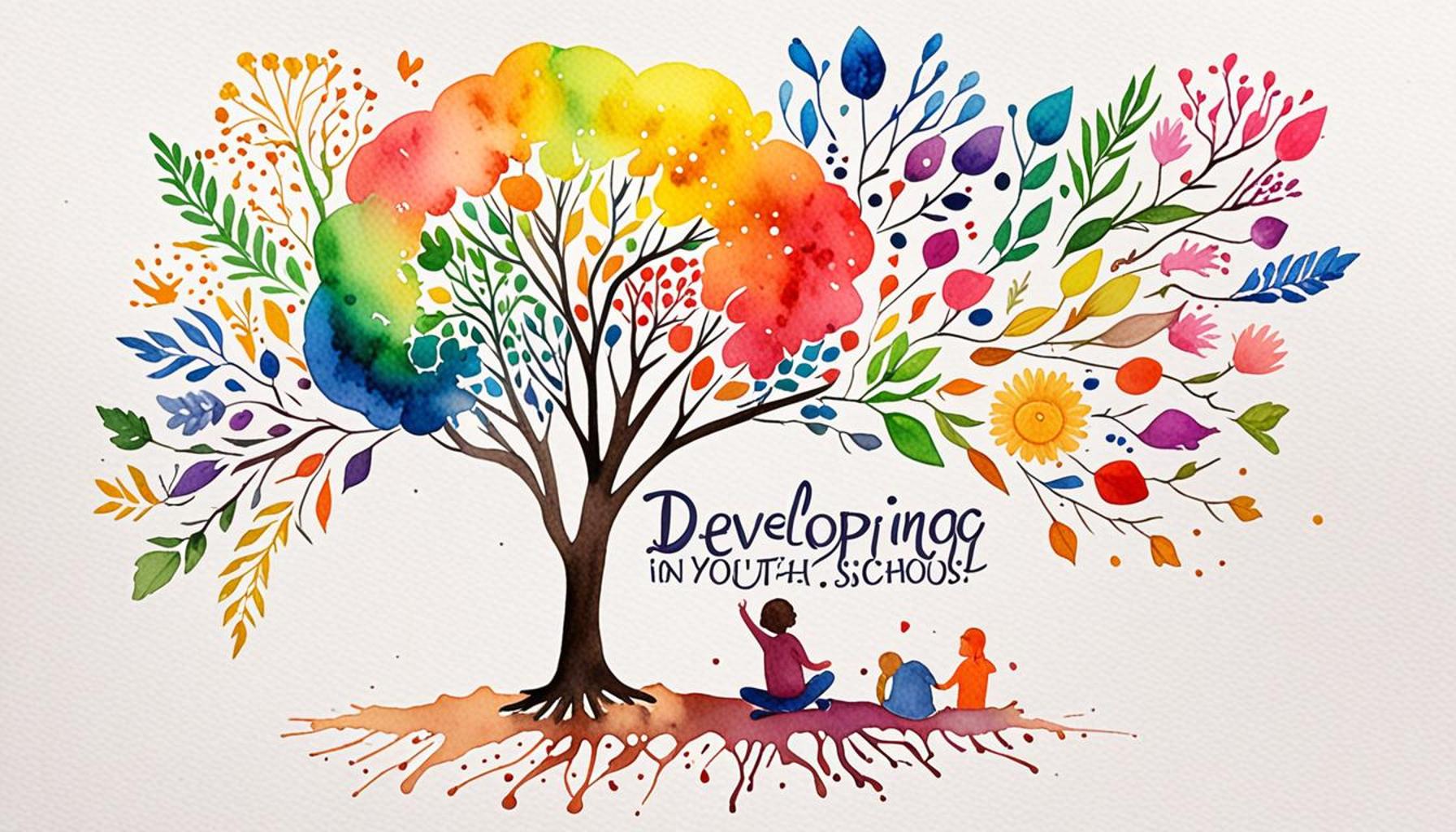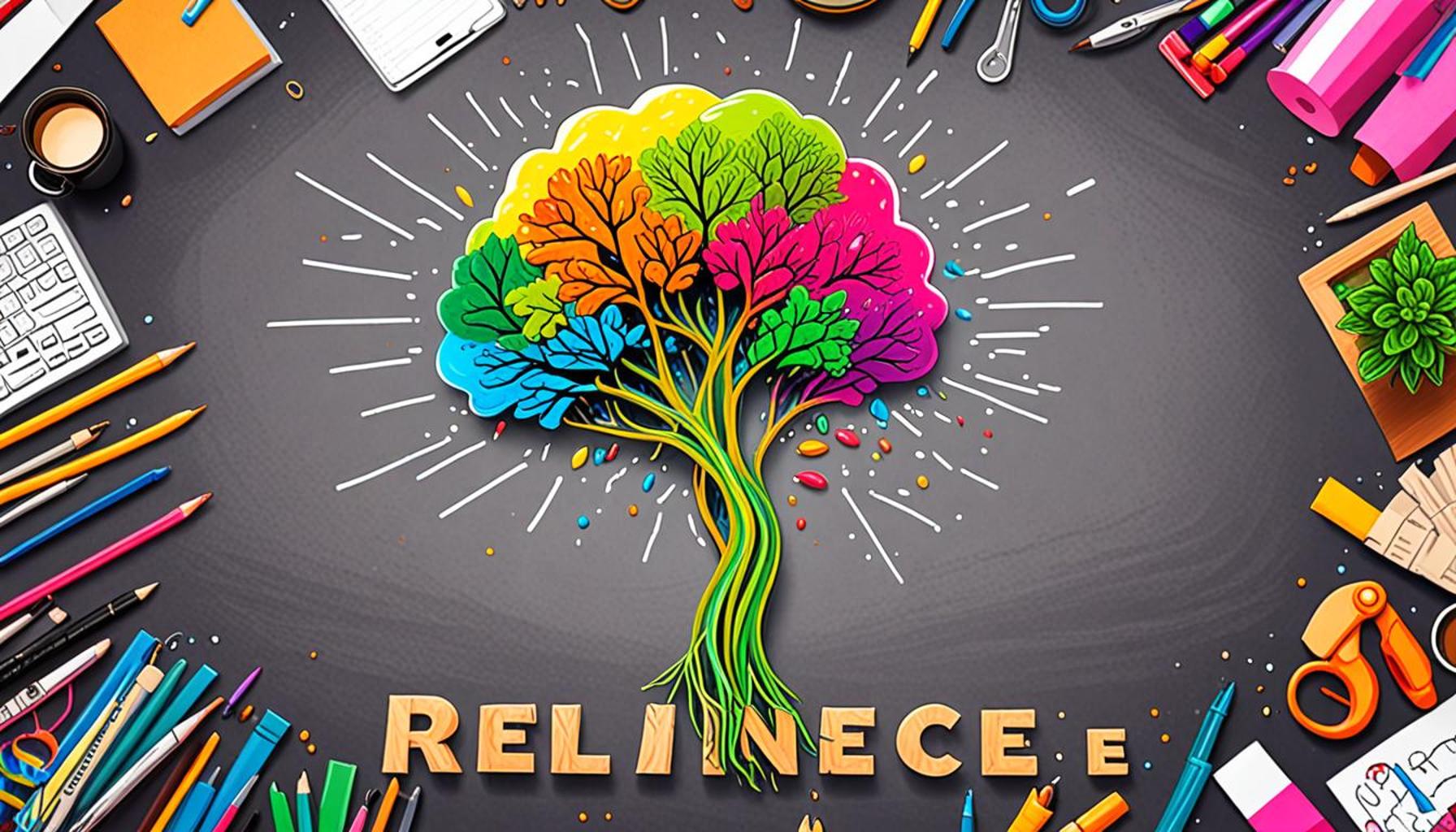Resilience and Cultural Diversity: Techniques to Foster a Growth Mindset in Multicultural Environments

The Significance of Cultural Diversity in Nigeria
In today’s interconnected world, cultural diversity is more than just a concept; it’s a vital aspect of our daily lives. The rich tapestry of cultures within Nigeria, comprising over 250 ethnic groups, each with its unique traditions, languages, and customs, significantly shapes the nation’s identity. As more communities embrace multiculturalism, understanding how to cultivate resilience becomes crucial for both personal and collective growth, especially in a landscape as diverse as Nigeria’s.
A growth mindset can empower individuals to thrive amid differences, creating an environment where innovation and creativity flourish. This mindset promotes the belief that abilities can be developed through dedication and hard work, which is essential in a multicultural context where varying viewpoints and experiences can lead to groundbreaking ideas and solutions.
Benefits of Leveraging Cultural Diversity
Embracing cultural diversity not only enriches individuals but also enhances community cohesion and fosters economic growth. Here are some key advantages:
- Enhanced creativity: Diverse perspectives contribute to unique solutions that might not emerge in a homogenous setting. For example, a team comprising individuals from different cultures can brainstorm innovative marketing strategies that appeal to a broader audience.
- Improved problem-solving: Teams that appreciate diversity can tackle challenges from various angles, leading to more effective solutions. In Nigerian cities like Lagos, businesses that value diverse teamwork often outperform competitors by attracting a wider clientele.
- Greater adaptability: Exposure to various cultural contexts fosters flexibility in thought and action. This trait is invaluable in today’s fast-paced global environment, where challenges and opportunities can arise unexpectedly.
Intentional Strategies for Nurturing Resilience
However, embracing this diversity necessitates intentional strategies to nurture resilience among individuals. Here are some techniques to cultivate a stronger multicultural environment:
- Cultural exchange programs: Organizing workshops and community events where participants can share their cultures promotes understanding and appreciation. For instance, school programs in regions like Kano could focus on different local folklore, engaging students in learning through storytelling.
- Inclusive training: Implementing programs that promote awareness and understanding of different cultural backgrounds can reduce stereotypes and biases. Such training could provide insights into the unique perspectives of various ethnic groups within Nigeria.
- Storytelling: Encouraging individuals to share personal narratives fosters empathy and builds strong connections. Events like community storytelling nights can encourage Nigerians from diverse backgrounds to narrate their life experiences, allowing others to understand and appreciate the richness of different cultures.
As we delve into the interplay of resilience and cultural diversity, it’s essential to recognize how fostering a growth mindset can transform multicultural environments into thriving ecosystems of collaboration and success. By adopting these techniques, individuals and communities can enhance personal development while enriching the societal fabric, ultimately leading to a more inclusive and dynamic Nigeria.

LEARN MORE: This related article may interest you
Unlocking Potential Through Counteractive Strategies
In Nigeria’s dynamic and multifaceted society, promoting a growth mindset is crucial for unlocking the collective potential of its diverse population. A growth mindset trains individuals to perceive challenges as avenues for personal and communal development rather than barriers that obstruct progress. This mindset is particularly relevant in Nigeria, where the ethnic mosaic can sometimes breed conflict and misunderstanding if not approached with sensitivity and intention. By actively cultivating resilience through thoughtful strategies, we can leverage cultural differences to foster harmony and innovation.
To effectively integrate resilience-building practices into everyday life, it is vital to explore actionable techniques that promote unity. Many of these strategies can be adapted to suit various contexts, whether in educational institutions, workplaces, or community gatherings. Below are several key methods to consider:
- Collaboration across cultural divides: Establishing cross-cultural teams can significantly enrich discussions and generate new insights. For example, when Yoruba and Igbo students collaborate on a community development project, they bring together distinct worldviews that enhance creativity. The blending of their unique perspectives may lead to innovative solutions, such as developing culturally inclusive educational programs that reflect the needs of various ethnic groups. Moreover, such collaborative efforts help to solidify relationships and promote mutual respect among different communities.
- Mentorship programs: Creating mentorship pairings among individuals from varied backgrounds facilitates invaluable exchanges. For instance, a seasoned Hausa entrepreneur can guide a young Fulani business student, sharing not only technical skills but also fostering dialogue about cultural identities and their implications in the business world. This transfer of knowledge empowers mentees to navigate challenges with confidence and resilience and nurtures a sense of belonging that transcends ethnic divides.
- Community service initiatives: Engaging in volunteer work that spans different communities fosters connections and creates a shared sense of purpose. For example, health initiatives that bring together individuals from various ethnic backgrounds to provide medical assistance in underserved areas not only address critical health needs but also foster friendships and build trust. These joint efforts reinforce the understanding that working together, despite cultural differences, is fundamental to achieving common goals.
Exposure to diverse ideas and perspectives enhances adaptability, a quality that is increasingly essential in today’s rapidly changing global landscape. Programs designed to promote a growth mindset must encourage participants to face the challenges posed by cultural diversity with openness rather than retreat. As a result, Nigerian institutions, including both educational establishments and workplaces, should systematically incorporate these strategies into their operational frameworks.
As we delve deeper into the relationship between resilience and cultural diversity, it becomes clear that the path to nurturing a growth mindset offers multiple opportunities for enrichment. By committing to structured programs that foster mutual learning, Nigeria can cultivate an environment where diversity is celebrated and transformed into a source of innovation and strength. This, in turn, will contribute to creating a more resilient society that stands prepared to confront both local and global challenges.
Resilience and Cultural Diversity: Techniques to Foster a Growth Mindset in Multicultural Environments
As globalization continues to reshape our communities, understanding how to cultivate a growth mindset in multicultural environments becomes increasingly important. This involves recognizing the value of resilience and cultural diversity as distinct but interconnected skills that can enhance teamwork and collaborative problem-solving. By integrating techniques that promote these qualities, individuals and organizations can create more inclusive and effective environments.
One such technique is the implementation of active listening. This practice encourages individuals to engage with diverse perspectives before forming conclusions. Listening actively not only fosters understanding but also builds trust among team members from varied backgrounds. Furthermore, creating safe spaces where voices are validated can significantly enhance emotional resilience.
Moreover, cultural competency training plays a crucial role. By educating individuals about different cultural norms and values, organizations can empower members to adapt their communication styles effectively. This adaptability not only enhances interpersonal relationships but also elevates overall productivity since diverse teams are more likely to generate innovative solutions.
Moreover, promoting a learning-oriented culture where mistakes are viewed as opportunities for growth encourages continuous improvement. When team members understand that failure is part of the learning process, they are more likely to experiment with new ideas and take calculated risks in their work, leading to increased innovation.
The integration of storytelling can further enhance the connection among team members from various cultures. Sharing personal experiences helps to humanize interactions and underscores the shared values and aspirations that transcend cultural barriers. This practice not only fosters empathy but also nurtures a sense of belonging within teams.
| Category | Benefits |
|---|---|
| Active Listening | Enhances trust and emotional resilience among diverse team members. |
| Cultural Competency Training | Promotes effective communication and innovation within multicultural teams. |
| Learning-Oriented Culture | Encourages risk-taking and creativity by framing failures as learning opportunities. |
| Storytelling | Fosters empathy and connection, reinforcing shared values across cultures. |
Utilizing these techniques not only promotes a growth mindset but also prepares individuals to navigate the complexities of multicultural interactions. As team members learn and grow together, they become more adept at facing challenges with resilience, ultimately leading to more successful collaborations and outcomes.
CHECK OUT: Click here to explore more
Nourishing Growth Through Celebrating Cultural Narratives
In Nigeria, one of the richest tapestries of cultural heritage in the world, integrating cultural narratives into resilience-building initiatives is vital for fostering a strong growth mindset. By embracing the diverse stories and experiences of its many ethnic groups, we can create a broader understanding of identity and shared history, contributing to a culture of empathy and collaboration. Acknowledging the unique narratives of Nigeria’s people not only affirms their individual and collective identities but also reinforces their capacity to navigate challenges together.
One effective method to promote these narratives is through storytelling workshops. These workshops can encourage participants from various backgrounds to share their personal and community stories, allowing them to explore common themes of struggle and triumph. For instance, a storytelling event where individuals from the Yoruba, Hausa, and Ijaw communities convey their ancestral tales fosters an appreciation for diverse cultural backgrounds. This practice helps individuals recognize their shared humanity while developing a more profound respect for each other, thereby enhancing resilience in the face of adversity.
Art initiatives also serve as a powerful medium to cultivate a resilient growth mindset. Community art projects, such as murals or public performances, can encourage collaboration between artists from different cultural origins. These artistic expressions can address social issues, celebrate diversity, and inspire dialogues around cultural resilience. For example, an art installation in Lagos that features contributions from various ethnic groups can highlight the shared struggles and aspirations of Nigerians, inviting community members to engage with one another in a creative context. Such collaborations can enhance a sense of belonging and unity as participants collectively celebrate their differences.
Moreover, integrating cultural education into school curriculums is another vital approach to nurture a resilient growth mindset among younger generations. By introducing comprehensive programs that explore the histories, languages, and traditions of Nigeria’s diverse ethnic groups, students will develop a deeper understanding of their multicultural environment. For example, a curriculum that includes not only language studies but also sessions about the cultural significance of traditional festivals can encourage students to appreciate their peers’ unique backgrounds. This exposure fosters curiosity and adaptability, essential traits in navigating an increasingly interconnected world.
Additionally, hosting cultural exchange events can profoundly impact community resilience. These events can be designed around food, music, and traditional performances that invite participation and interaction among attendees. A vibrant culinary festival featuring dishes from the southeastern and southwestern regions of Nigeria, for instance, will not only provide a platform for cultural exchange but also create spaces for dialogue and relationship-building. Such gatherings celebrate diversity while cultivating a sense of community and shared joy, reinforcing the idea that embracing differences can lead to personal growth and development.
The power of community lies in recognizing and valuing cultural differences, as they play a critical role in shaping our collective experiences. By employing techniques that celebrate cultural narratives alongside established resilience training, Nigerians can create inclusive environments where diversity is not merely tolerated but embraced as a source of strength and innovation. Ultimately, these practices will contribute significantly to fostering a sustainable growth mindset across Nigeria’s vibrant multicultural landscape.
RECOMMENDED: Check out this similar article
Conclusion
As Nigeria navigates the complexities of its multicultural landscape, the importance of resilience and cultural diversity cannot be overstated. By harnessing the richness of its diverse narratives and experiences, we pave the way for a more inclusive society that values collaboration and empathy. The techniques discussed—such as storytelling workshops, art initiatives, cultural education, and cultural exchange events—offer profound avenues for fostering a growth mindset among individuals from various backgrounds.
Cultivating resilience through these strategies not only enhances personal development but also strengthens community ties, ultimately leading to a more unified national identity. As participants engage with one another’s stories and artistry, they tap into the shared rhythm of humanity, constructing a fabric of understanding that transcends ethnic divides. Moreover, educating future generations about the importance of cultural appreciation ensures that resilience is ingrained in the very essence of our youth.
In this era of globalization, fostering a growth mindset through cultural diversity has the potential to yield innovative solutions to societal challenges. By embracing our differences and learning from one another, we equip individuals and communities to adapt and thrive amidst adversity. Thus, as Nigeria continues to grow and evolve, let us champion these techniques—fostering resilience and nurturing a vibrant, inclusive society where every voice is celebrated and empowered.


